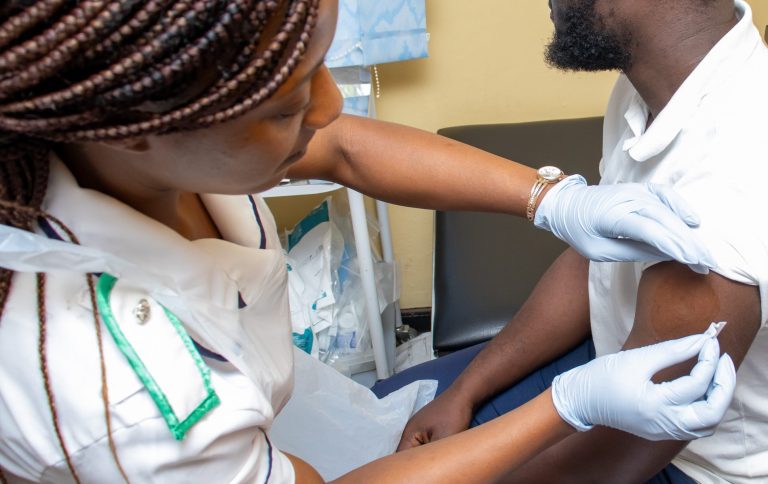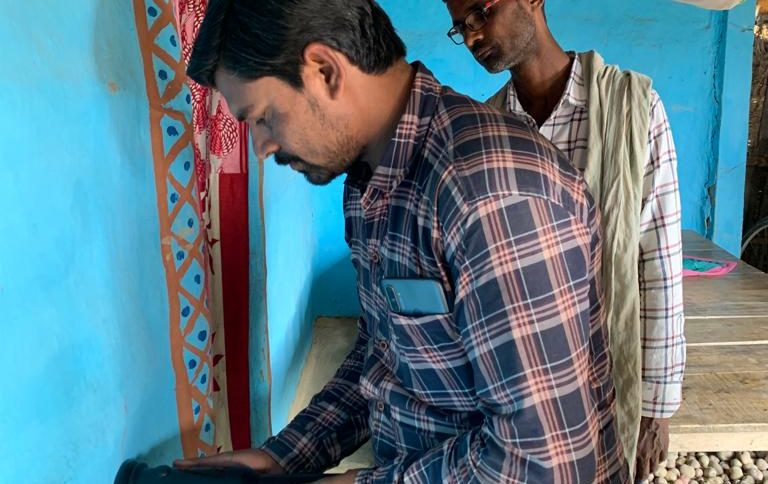- Find our latest Case Studies
- Our Platforms
Our Platforms
- Platform 1: Bioactives Library – Shaping novel antimicrobial products
- Platform 2: Hits to Leads – Developing new innovative antibiotics
- Platform 3: Organoid modelling – Enhancing drug discovery
- Platform 4: Advanced AMR Modelling
- Platform 5: Human Challenge – Small scale clinical trials
- Platform 6: Diagnostics
- Platform 7: Randomised Control Trials
- Platform 8: Mapping and Modelling
- Platform 9: Nanotherapeutics
- Platform 10: Antibody Humanisation
- Platform 11: Long-Acting Therapeutics
New £10 million robotic AI laboratories will ‘supercharge’ iiCON’s infection R&D activity

Activity at iiCON, led by Liverpool School of Tropical Medicine (LSTM), will be bolstered through a £10 million government investment to develop large Category Three robotic laboratories capable of handling a range of dangerous and deadly pathogens.
The award is part of the Liverpool City Region Life Sciences Investment Zone plans to supercharge the sector. Overall, the Investment Zone plans to create 8,000 new jobs and potentially deliver £800m of public and private investment over 10 years.
The funding will support the development of high-containment robotic laboratories based at LSTM fitted with state-of-the-art robotics, AI, and liquid handling equipment. The new facility will be completed in the next two years and will support iiCON’s ongoing activity in propelling innovative infection R&D.
Led by LSTM with core partners LifeArc, Unilever, Evotec, Liverpool University Hospitals Foundation Trust, University of Liverpool, and Infex Therapeutics, iiCON brings together industry, academia, and clinicians to accelerate the discovery and development of new products for infectious diseases. The £260 million consortium launched in 2020 with £18.6 million in funding from UK Research & Innovation’s flagship Strength in Places programme. It works with over 800 companies worldwide and has already created over 560 jobs and supported over 36 new products to market, saving and improving thousands of lives.
The new laboratories will enable iiCON to increase the commercialisation of two of its innovative R&D platforms led by LSTM: Organoids and its Bio-Actives Library. The new facility will support cutting-edge industry innovation and streamline and expand activity across the two platforms to drive forward new treatments and products – opening this highly specialised offering to a larger range of companies nationally and internationally.
Research using human organoids is at the cutting-edge of infection R&D and offers new ways of shaping treatments and products to respond to some of the most challenging and deadly infections. While the Bio-Actives Library is designed to drive innovation and support companies of all sizes on the discovery journey. Working at the vanguard of life sciences technology, these approaches have potential to shape the next generation of transformative novel antimicrobial products and therapies.
As part of the Investment Zone plans, iiCON and LSTM will also develop RIBA Stage 2 plans for a new facility in Liverpool which will provide increased specialist biotech and high-containment Category Three laboratories to house the expansion of iiCON’s existing R&D platforms.
Professor Janet Hemingway, founding director of iiCON, said: “From the outset, iiCON was structured to develop innovative R&D platforms using cutting-edge technology and approaches that would allow companies to bring their products through to market more effectively.
“We’re pleased to have secured this important funding as part of the Liverpool City Region Life Sciences Investment Zone programme. This funding is an important next step which will enable us to continue to develop and expand our operational pipeline – opening out our highly specialist offering to industry partners of all sizes to support their innovation and save and improve lives worldwide.
“Over the next five to ten years, we anticipate significant growth in the numbers of direct high-level jobs associated with the intermediate and long-term developments outlined in the prospectus, alongside support for local business growth in this area.
“As a place-based initiative, our location in the heart of the Liverpool City Region’s thriving health and life sciences ecosystem has been key to the success of the programme. The region has world-leading capability in drug discovery, diagnostics, clinical trials, & vaccine manufacturing capability within one of Europe’s largest biopharmaceutical manufacturing clusters and the plans laid out in the Investment Zone prospectus speak to the scale of the ambition within the region.”
The significant investment in the new facilities is part of ambitious plans to supercharge Liverpool City Region’s economy, create 8,000 new jobs, and save lives globally through the region’s Life Sciences Investment Zone.
Mayor of the Liverpool City Region, Steve Rotheram, said: “With up to £800m of investment and thousands of quality, high skilled jobs on offer, the Liverpool City Region Innovation Zone is an important tool in our arsenal to position our area at the head of UK science and innovation.
“But in the Liverpool City Region, we’re proud to do things differently. Throughout the development of our Innovation Zone, I have been clear that any investment in our area must go further than purely financial incentives. I want to use our status as a force for good, to connect our residents up to secure, well-paid jobs and training opportunities, and attract transformational investment into our communities.
“Becoming an innovation superpower is a lofty ambition – but I firmly believe that, if anywhere has the potential to achieve it, then it is the Liverpool City Region.”
The region’s Life Sciences Investment Zone plans are detailed in a new Prospectus highlighting the area’s world leading innovation strengths and assets, while showcasing 21 projects across the region that will create new hi-tech facilities, provide business and innovation support and train the next generation of talent.


